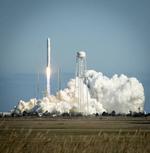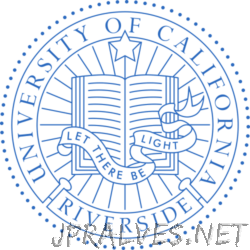Other

“UC Riverside chemical engineers have designed a fuel that ignites only with the application of electric current. Since it doesn’t react to flames and cannot start accidental fires during storage or transport, it is a “safe” liquid fuel. “The …

“A study showing how electrons flow around sharp bends, such as those found in integrated circuits, has the potential to improve how these circuits, commonly used in electronic and optoelectronic devices, are designed. It has been known theoretically for about …

“A research team led by a physicist at the University of California, Riverside, has demonstrated a new magnetized state in a monolayer of tungsten ditelluride, or WTe2, a new quantum material. Called a magnetized or ferromagnetic quantum spin Hall insulator …

“Because it’s bigger, Jupiter ought to have larger, more spectacular rings than Saturn has. But new UC Riverside research shows Jupiter’s massive moons prevent that vision from lighting up the night sky. “It’s long bothered me why …

“Using light-capturing proteins in living microbes, scientists have reconstructed what life was like for some of Earth’s earliest organisms. These efforts could help us recognize signs of life on other planets, whose atmospheres may more closely resemble our pre-oxygen …

“Scientists are developing artificial photosynthesis to help make food production more energy-efficient here on Earth, and one day possibly on Mars Photosynthesis has evolved in plants for millions of years to turn water, carbon dioxide, and the energy from sunlight …

“Advances in computer vision and machine learning have made it possible for a wide range of technologies to perform sophisticated tasks with little or no human supervision. From autonomous drones and self-driving cars to medical imaging and product manufacturing, many …

“Computer scientists at UC Riverside can detect manipulated facial expressions in deepfake videos with higher accuracy than current state-of-the-art methods. The method also works as well as current methods in cases where the facial identity, but not the expression, has …

“If not for the soupy, fast-moving atmosphere on Venus, Earth’s sister planet would likely not rotate. Instead, Venus would be locked in place, always facing the sun the way the same side of the moon always faces Earth. The …

“A chemical used in electric vehicle batteries could also give us carbon-free fuel for space flight, according to new UC Riverside research. In addition to emission reductions, this chemical also has several advantages over other types of rocket fuels: higher …

